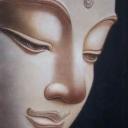Yahoo Answers is shutting down on May 4th, 2021 (Eastern Time) and beginning April 20th, 2021 (Eastern Time) the Yahoo Answers website will be in read-only mode. There will be no changes to other Yahoo properties or services, or your Yahoo account. You can find more information about the Yahoo Answers shutdown and how to download your data on this help page.
Trending News
I want to practice Nichiren Buddhism independently and want to know the experiences of those who are doing so now.?
I originally joined SGI but realized fairly quickly that they were a demanding group, quite unlike what I expected to find in Buddhism. The meetings and the obligations were just too much. I also have a personal problem with the elevation of Daisaku Ikeda. They revere him like Catholics revere Mary and that alone turned me off...but not to chanting. I would lov to hear stories of people who printed their gohonzon online and if it was affective for them? I'm at a spiritual crossroads but as I said I do enjoy my chanting and want to continue without impairment from an overly involved group...
5 Answers
- Anonymous6 years ago
Nichiren Buddhism is one of the schools of Mahayana Buddhism, and ALL schools of Mahayana tell you that you cannot or should not practice without the direct guidance of a teacher. I myself have seen people's personality deranged by trying to practice Vajrayana on their own.
From what you say, it sounds like you would be much more comfortable with Theravadan Buddhism, rather than Nichiren.
Theravadan is often better-suited for Western tastes.
It is more down to earth, and it is also the only Buddhist tradition that is suitable for do-it-yourself.
I would suggest you buy a copy of "Mindfulness in Plain English" by Gunaratana (you can buy it new or used on amazon.com)
The first few chapters are an explanation of what Buddhism is . and is not. And I think it is the best summary I have ever read (but then I already understood Buddhism when I did read the book).
And the rest consists of instructions on how to do Vipassana/Mindfulness meditation, including guidance for the obstacles you run across.
Here is a paragraph from the first few chapters of this book .. if it makes sense to you, the rest of the book will probably serve you well.
The Buddhist “learns to watch changes occurring in all physical experiences, in feelings and in perceptions. He learns to study his own mental activities and the fluctuations in the character of consciousness itself. All of these changes are occurring perpetually and are present in every moment of our experiences. Meditation is a living activity, an inherently experiential activity. It cannot be taught as a purely scholastic subject.” (“Mindfulness in Plain English” by Venerable H. Gunaratana Mahayhera, a Theravadan Buddhist teacher)
However ... even with Theravadan, it is better to have a teacher. I know a guy who practiced on his own for 15 years and didn't get the basic "gist" of Buddhism until he had been taking lessons from a bhante (monk) for a couple more years. With Theravadan and no teacher, you don't go off track like you do with the Mahayana traditions ... you just might not produce any inner change.
Because Buddhism is a program to produce inner change.
Buddhism means meditation, and meditation is work .... often drudgery.
Properly done, you can expect inner attitudes to start changing after 3-8 years of practice
- ZasetsuLv 66 years ago
Nichiren demanded that all temples of other Buddhists were to be destroyed...the monks put to death....and a gohonzon put in every home....Buddhism? Not with behavior like that openly displayed. I recommend you research the history of Nichiren and his adoration of the Lotus Sutra
" Sanskrit and Chinese on the other hand are completely unrelated and therefore require a more direct/authentic exegetical semantic transfer than languages that lean on their shared semantic fields. At least that's one school of thought."
A casual cursory examination of paleolinguistics show that Sanskrit has NO relationship to the Chinese language whatsoever.
"From my own experience, I would say that Chinese is not a particularly suitable language for translating Sanskrit. In so many respects, these two languages could hardly be more different: one is highly inflected and the other is isolating; there are no cognates; their grammar and syntax are quite dissimilar; their phonologies are contrasting; their morphologies disparate; their literary images and allusions are based upon diverse traditions and practices; Chinese translators of Sanskrit texts often make errors that are clearly the result of not understanding the original (there have been impressive studies of this phenomenon [e.g., John Brough's "The Chinese pseudo-translation of Arya-sura's Jataka-mala", Asia Major, vol. 11, no. 1 (1964)]); and so forth."
Source(s): http://languagelog.ldc.upenn.edu/nll/?p=6931 - Creole38Lv 46 years ago
Actually it's Sanskrit an ancient form of Chinese and I simply chant that I devote myself to the law of cause and effect. The same as the Christian concept, "As you sow, so shall you reap." I've turned away from Christianity because I can't stomach the Christian right wing and their racist rants against President Obama, their hate filled speeches against gays/lesbians/transgender and their ridiculous assertion that theirs is the only way while they hypocritically go around judging people and saying mean things.
- toughastruckLv 76 years ago
Try the Father, Son, and Holy Ghost.
Your chanting could very well be speaking in an unknown tongue.
- How do you think about the answers? You can sign in to vote the answer.



